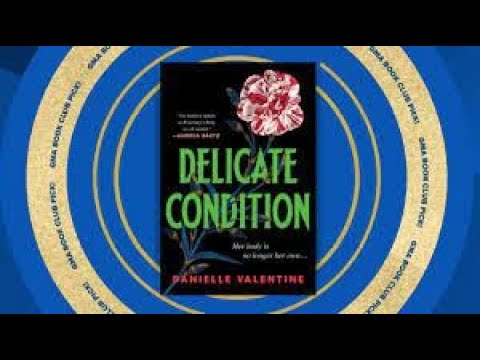
Understanding Anna Alcott’s Delicate Condition: A Personal Analysis
Anna Alcott, the NYC-based actress who’s taken the literary world by storm, pulls readers deep into her emotional landscape with her latest work titled Delicate Condition. This book isn’t just a story; it’s a visceral exploration of the struggles she faced on her journey through IVF and motherhood, touching on anxiety, depression, and the societal pressures that women wrestle with in modern life. Her narrative reflects not only her personal experiences but also resonates with the broader conversation surrounding mental health, particularly how the neglect of female pain often leaves women feeling shackled by an unyielding system.
Alcott’s ‘delicate condition’ functions as both a literal and metaphorical exploration of vulnerability. It highlights how women, including Alcott herself, face challenges that remain invisible to many. Her tale sheds light on the emotional cost of these struggles, illustrating the impact of businesses and systems that often gloss over the emotional turmoil related to health experiences like IVF and pregnancy. As readers, we find ourselves not just observing but experiencing the tempestuous nature of her reality.
This emotional journey deepens when we learn of Alcott’s complex relationship with her husband, Dexter Harding. His emotional distance underscores a critical point: female pain is often disregarded by partners and systems, leaving women to fend for themselves in their darkest hours. Alcott’s writing invites readers to question the societal structures that contribute to this neglect while advocating for a more compassionate approach to mental health and female experiences.

Top 5 Emotional Milestones in ‘Delicate Condition’
Alcott’s portrayal of her childhood is striking. The pressure to meet societal expectations created an internal battleground for her—a theme that resonates strongly today, particularly among high-achieving Generation Z students. In her essay “The Weight of Innocence,” she lays bare how those early experiences reverberated through her life, establishing a foundation of anxiety that she would struggle with for years.
One of the transformative moments in Alcott’s story comes when she begins to confront her identity in her twenties. This rite of passage resonates with the modern discourse around self-actualization. Just like the powerful insights shared by leaders like Brené Brown about the strength found in vulnerability, Alcott’s narrative encourages readers to look inward and acknowledge the complexities of their identities.
The bond Alcott shares with her best friend, Lucy, becomes a lifeline amid her struggles. Their candid conversations about mental health and personal challenges act as a foundation for healing, echoing Dr. John Gottman’s research which emphasizes the significance of supportive relationships in mental well-being.
Through her writing, Alcott unearths a therapeutic outlet that allows her to process her emotions. This reflects the experiences of writers like Elizabeth Gilbert, who champion creativity as a vital aspect of personal healing. Alcott’s journey emphasizes that art can serve as a key to unlock both individual coping mechanisms and community understanding.
The culmination of Alcott’s story reveals her heartfelt acceptance of her ‘delicate condition.’ By recognizing her vulnerabilities, she conquers the stigmas surrounding mental health. This mirrors Michelle Obama’s insights on finding strength through personal challenges, inviting readers to celebrate their journeys instead of shying away from them.

Lessons from Anna Alcott’s Delicate Condition for Readers
Delving into Alcott’s journey, readers unearth invaluable lessons in confronting their own delicate conditions. Her narrative encourages a focus on mindfulness practices and the prioritization of mental health, mirroring popular trends in wellness culture. Integrating lessons from mindfulness advocates like Jon Kabat-Zinn, Alcott inspires individuals to cultivate their sense of self-compassion and resilience amidst life’s challenges.
Delicate Condition isn’t just a book; it’s a call to action. It invites readers to understand the importance of seeking help and sharing their stories, igniting dialogues about mental health. This encourages individuals to proactively engage with their emotions, fostering a sense of community and belonging amidst similar struggles.
Embracing mindfulness can make a significant difference. Simple practices, such as meditation and reflection, can help readers navigate their emotional landscapes more effectively. Alcott’s journey shows that confronting one’s vulnerabilities is not a weakness but a tremendous source of strength.

The Broader Conversation: Cultural Context Keywords in ‘Delicate Condition’
Alcott’s work emerges at a pivotal moment in cultural discussions surrounding mental health. As we navigate a world marked by social media’s relentless pressure, economic uncertainties, and global challenges, the concept of a ‘delicate condition’ resonates more than ever. Many individuals experience anxiety and depression, particularly in the post-pandemic landscape where these themes have permeated public discourse.
Through her experiences, Alcott reflects the realities faced by countless individuals striving to maintain their mental health in today’s frenetic culture. The evolution of societal attitudes towards mental wellness invites a broader dialogue, emphasizing that a delicate condition is a theme shared, rather than solitary—a powerful reminder that healing begins with solidarity and understanding.

Innovative Perspectives: The Future of Dialogues Around Delicate Health Conditions
Anna Alcott’s emotional journey acts not only as a personal narrative but also serves as a rallying cry for comprehensive discussions on mental health. It’s vital to understand that acknowledging one’s delicate condition isn’t a sign of weakness but a seminal step towards empowerment. Her experiences call for a deeper understanding and encourage contemporaries to share their stories, cultivating a supportive community.
As readers engage with Alcott’s narrative, they’re inspired to recognize and explore their own delicate conditions. This exploration isn’t just personal; it contributes to a larger dialogue about mental health. Initiatives like community outreach, creative expression, and open conversations can foster healing and understanding in broader circles, encouraging individuals to connect over shared struggles.
The future is bright for mental health advocacy, fueled by stories like Alcott’s that speak truthfully to the collective human experience. By embracing vulnerability and encouraging open conversations, we lay the groundwork for a healthier, more compassionate society.
In essence, Anna Alcott’s Delicate Condition isn’t merely a compelling story—it’s a transformative movement in how we perceive and discuss mental health, urging us all to embrace our delicate conditions for the sake of personal and communal growth.
Delicate Condition: Fun Trivia and Interesting Facts
The Journey Through Delicate Conditions
Navigating through a delicate condition can feel like a rollercoaster ride, filled with ups, downs, and twists that throw you for a loop. Did you know that many people who face emotional upheavals often turn to fitness and nutrition? For instance, a tasty shake or smoothie made with devotion protein powder can truly give someone a boost when they’re tackling personal challenges. Nutrition plays a vital role in emotional health, underscoring the power of what we fuel our bodies with.
Speaking of journeys, let’s not forget about the inspiring Elaine Lalanne, who has spent decades promoting health and well-being. She’s a testament to the strength one can derive from positive thinking and an active lifestyle, crucial elements when dealing with delicate conditions. Just like a crew on Below Deck Season 10, everyone has their own way of coping with stress, showcasing resilience amidst life’s storms.
Insights and Stories that Resonate
Every story within the realm of delicate conditions is uniquely human. Take Dudley Moore, for example—known for his infectious humor and talent, yet he faced his own personal battles that shaped who he was. Like many cherished individuals, his struggles remind us that we all cope differently. In times of distress, some may seek moments of escape, like booking Turks And Caicos Flights for a much-needed getaway. Others find solace in stories, whether it’s through watching films like those featuring the Everest movie cast or following the triumphs and trials of sports legends like Jonathan Toews.
At times, exploring the roots of our emotions feels like a journey back in time. The tale of Ebenezer, often a representation of human compassion and change, reflects how we can evolve through our delicate conditions. Each of these elements, from literary heroes to modern athletes, highlights the diverse ways we can address our innermost feelings. So, as you read Anna Alcott’s journey, consider how these influences play a part in navigating delicate conditions, and remember, even in tough times, there’s always hope on the horizon.

What happens at the end of the Delicate Condition?
At the end of Delicate Condition, Anna achieves everything she wanted, including a thriving career and a healthy daughter, who also becomes an actress. The story wraps up with a significant twist, linking her daughter to her late friend, Siobhan, through a unique birthmark.
What happens to Siobhan in Delicate Condition?
Siobhan dies tragically in a car crash at the same moment Anna gives birth to her baby girl. This dual event connects Siobhan’s spirit with Anna’s child, suggesting a reincarnation theme as Anna names her baby after Siobhan.
Is Delicate Condition supernatural?
Yes, Delicate Condition has supernatural elements woven into the storyline. A shocking event midway through the book shifts the narrative, introducing ghostly influences and otherworldly themes.
Is Delicate Condition worth reading?
Delicate Condition is definitely worth reading, especially if you enjoy psychological thrillers that challenge societal norms and delve into complex emotional topics. It offers valuable insights, and its unique plot twists may keep you turning the pages.
What does the ending of delicate mean?
The ending of Delicate Condition signifies hope and rebirth. Anna’s fulfillment of her dreams, combined with her daughter’s connection to Siobhan, underscores themes of love, loss, and the continuation of relationships beyond death.
What happens to Anna’s baby in Delicate?
Anna’s baby, a healthy girl, symbolizes the bond between her and Siobhan through the matching birthmark. This connection hints at Siobhan’s spirit being present within the child.
Why did Anna and Siobhan kiss?
Anna and Siobhan share a kiss as a moment of connection that deepens their relationship, showcasing the complexity of their emotions and the challenges they face on their journey.
What is the summary of the Delicate Condition?
Delicate Condition chronicles Anna’s struggles with IVF, the challenges of motherhood, and her evolving relationships, particularly with her husband, Dexter, and her late friend, Siobhan.
How did Anna defeat Siobhan?
Anna ultimately outmaneuvers Siobhan by confronting her past and understanding the depth of her own pain and desires. This inner journey allows Anna to reclaim her power and take charge of her future.
Is Delicate Condition like rosemary’s baby?
Delicate Condition shares some thematic similarities with Rosemary’s Baby, particularly in the exploration of motherhood, the supernatural, and the psychological struggles women face in a male-dominated world.
What is the most controversial Supernatural episode?
In Delicate Condition, Meg is a minor but pivotal character, adding depth to the narrative and helping to highlight Anna’s emotional state during her tumultuous journey.
Who is Meg in Delicate Condition?
The story wraps up poignantly as Anna finds both personal and professional success, but also explores the themes of loss and love through the reincarnation of her friend in her daughter.
How does Delicate Condition end?
Reading levels vary in difficulty, but some of the hardest texts can challenge even the most seasoned readers, often involving complex themes, intricate language, and layered narratives.
What is the hardest level of reading?
Delicate Condition’s premise revolves around the emotional turbulence of motherhood, particularly through the lens of an actress navigating the pressures of fame, relationships, and the struggles of reproductive health.


























